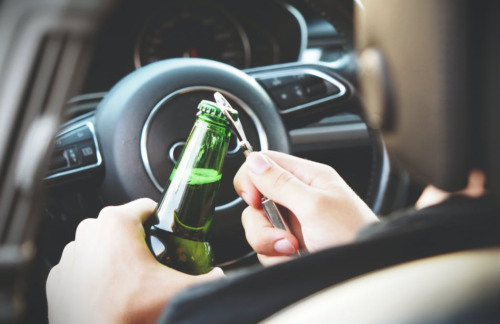Understanding DUI in South Carolina and navigating the legalities can be complex and overwhelming. Driving under the influence (DUI) can have some wide-ranging consequences. It affects not only the driver committing the offense but also others who could become victims of their impaired driving.
To ensure public safety, South Carolina implements strict drunk driving / impaired driving laws. This article aims to shed light on these laws and guide you through the challenging legal landscape if you face a DUI charge in South Carolina.
What’s the Legal Blood Alcohol Content (BAC) Limit in South Carolina?
South Carolina’s blood alcohol concentration (BAC) limit for adults driving under the influence is 0.08%, and 0.02% for drivers under 21. If a person’s BAC level exceeds the threshold while operating a vehicle, they’re considered legally impaired and subject to a DUI arrest. It’s critical to understand that even with a BAC below 0.08%, a driver may still face charges if their intoxication levels visibly affect their ability to drive safely.
South Carolina takes drunk driving seriously, with strict regulations to deter such incidents. These rules aim to protect those on the roads who may become victims of impaired driving accidents. Setting the alcohol limit at 0.08% sends a clear message that even a small amount of alcohol impairment poses a risk and will be met with penalties.
Anyone can potentially face a DUI charge, so it’s wise for drivers to familiarize themselves with DUI laws in South Carolina. Understanding these regulations can raise awareness about responsible drinking habits and ultimately contribute to creating safer roads across the state.

Implied Consent and Field Sobriety Tests
Being familiar with implied consent and field sobriety tests is crucial when navigating DUI laws in South Carolina. Implied consent refers to the assumption that by obtaining a driver’s license, individuals agree to undergo tests of their breath, blood, or urine if an officer suspects driving under the influence. Refusal to comply with these tests may result in immediate administrative penalties such as license suspension.
In addition to implied consent, law enforcement officers may administer field sobriety tests during a traffic stop if they suspect impairment. These tests assess an individual’s coordination, balance, and cognitive abilities. Standard methods include the walk-and-turn and horizontal gaze nystagmus (HGN) tests. Drivers in South Carolina should understand that participation in field sobriety testing is generally voluntary unless specifically mandated by law.
Awareness of these regulations empowers individuals facing charges for driving under the influence, allowing them to make informed decisions about their legal options. By learning the importance of public safety and compliance with DUI laws in South Carolina, drivers may be more likely to avoid potential drunk driving incidents.
Consequences and Penalties for DUI Offenses in South Carolina
Driving under the influence (DUI) in South Carolina carries severe consequences for offenders. The penalties can range from fines and license suspension to imprisonment, depending on the specific circumstances of the offense. Individuals may face a fine between $400-1,000 for a first-time DUI conviction and up to 30 days’ imprisonment. Additionally, the state suspends their driver’s license for six months.
The penalties become much harsher for subsequent offenses within ten years of a previous conviction. Second-offense DUIs may result in fines ranging from $2,100 to $5,100 and imprisonment for up to one year. There is a one-year license suspension without the possibility of getting a provisional or restricted license during this period.
There are some DUI cases involving aggravating factors like high blood alcohol concentration, injury-causing accidents, or deaths. In these cases, drivers can face felony charges with significantly higher penalties, including hefty fines and lengthy prison sentences.
Understanding the consequences of DUI in South Carolina can serve as a deterrent. They highlight why it’s crucial to avoid driving under the influence for personal safety and consideration for others on the roadways. Following responsible drinking practices or seeking alternative transportation can help ensure safer roads throughout our communities.

Getting SR-22 Insurance After a DUI Conviction
You may be thinking, “This all sounds rather gloomy”! And to an extent, it is because of the seriousness of this motor vehicle offense. But there is a light at the end. You can reinstate your license after a mandatory suspension period by filing an SR-22 insurance certificate with the South Carolina DMV. We attach the certificate to an auto or non-owner insurance policy and then file the certificate with the DMV on your behalf. You must maintain the insurance tied to the certificate for a specific time (usually three to five years) without a break in coverage.
Let UltraCar Insurance take some of the sting out of getting a DUI in South Carolina. We offer various insurance policies and coverage options at affordable SR-22 rates – without filing, processing, or brokerage fees! Call for a no-obligation consultation with one of our friendly agents, or start an online quote today!

